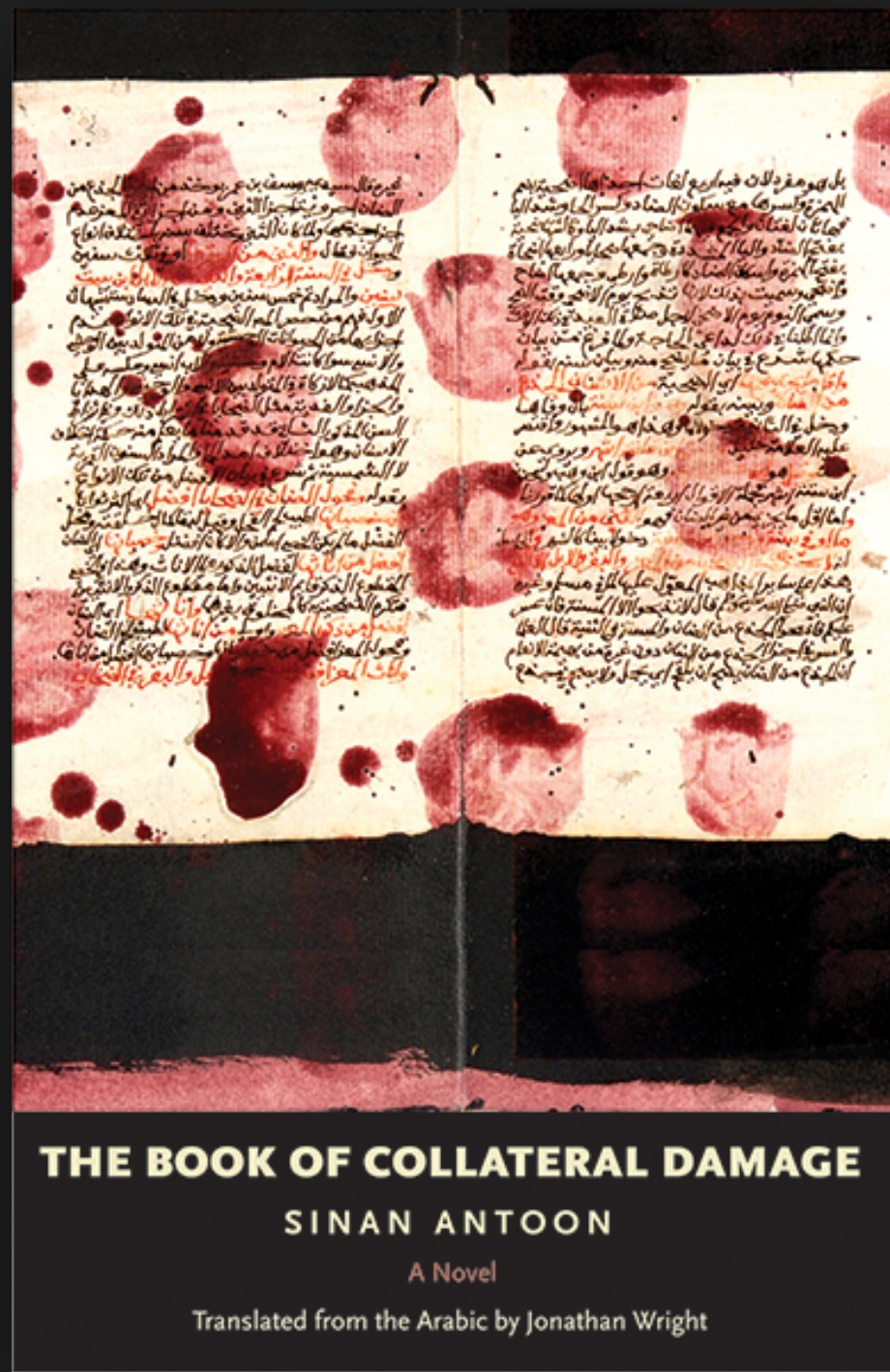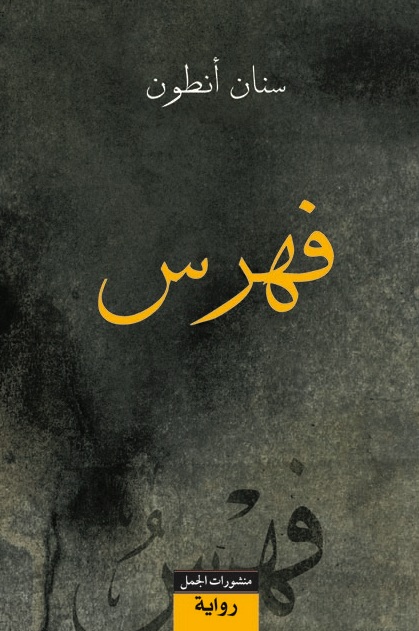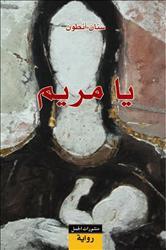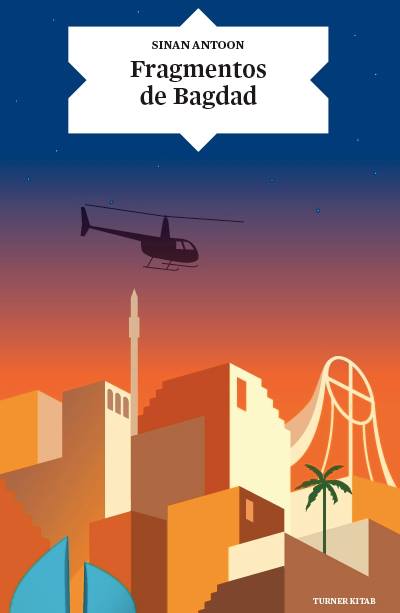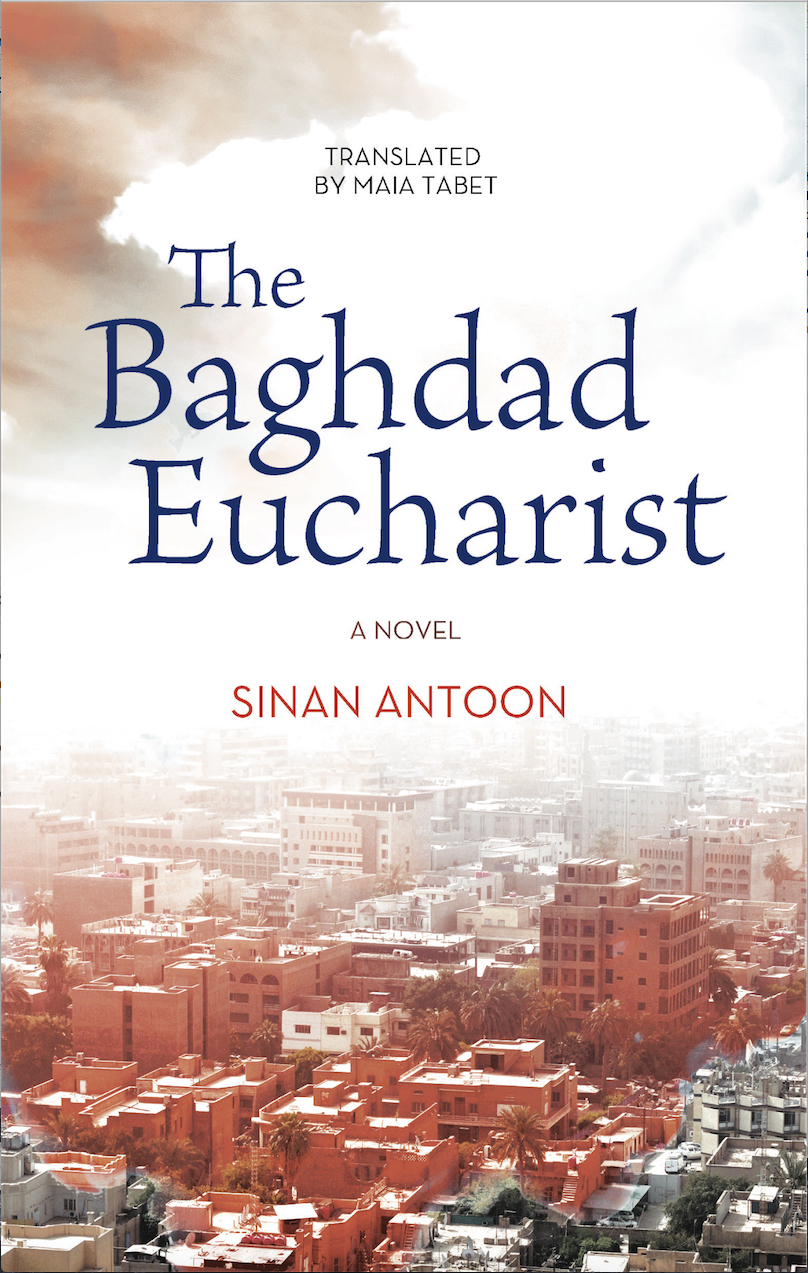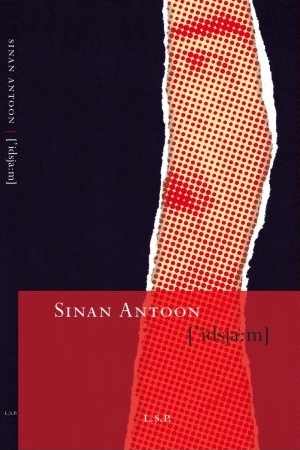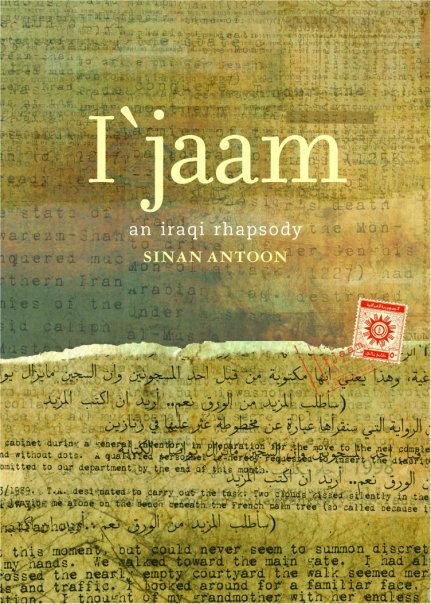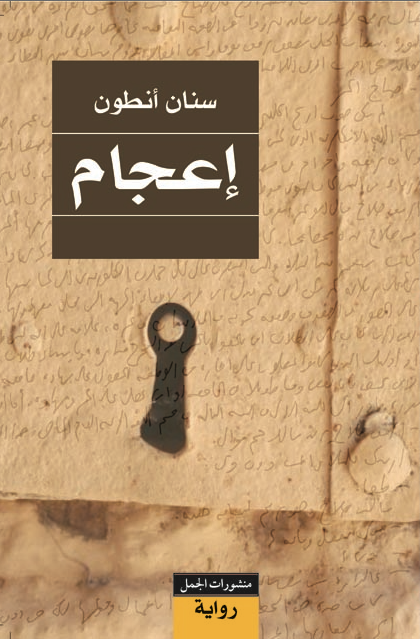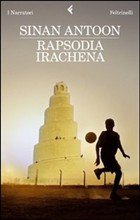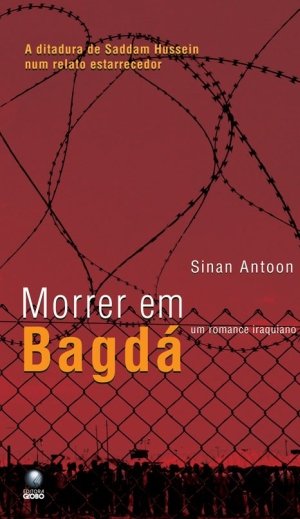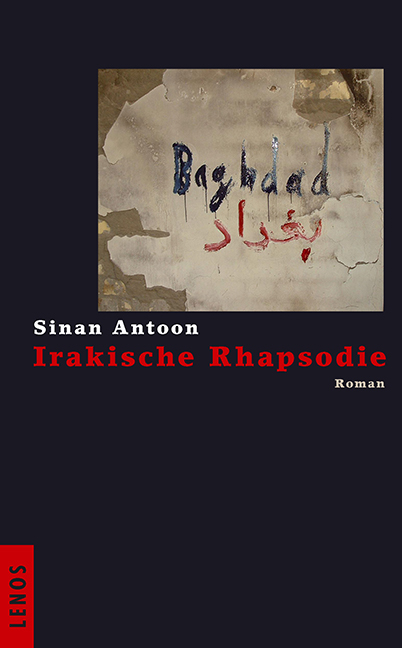The Book of Collateral Damage فهرس
Fihris (Beirut/Baghdad: Manshurat al-Jamal, 2016) منشورات الجمل، ٢٠١٦
Longlisted for the International Prize for Arabic Fiction 2016.
Translated by Jonathan Wright, Yale University Press, 2019.
Ave Maria (Ya Maryam) يا مريم، دار الجمل، ٢٠١٢
Dar al-Jamal, 2012
Shortlisted for the International Prize for Arabic Fiction 2013
Translated into Spanish by Mari Luz Comendador and published by Turner Libros as Fragmentos de Bagdad (2014).
Translated to English by Maia Tabet and published by Hoopoe Fiction as The Baghdad Eucharist (2017).
You can read an excerpt in English here and an essay about its characters and their fate in light of recent events in Iraq here.
The Corpse Washer وحدها شجرة الرمّان، دار الجمل، ٢٠١٢
(Yale University Press, 2013) Translated from the Arabic Wahdaha Shajarat al-Rumman (Dar al-Jamal, 2012) by the author.
Trnslations to French, Turkish, Macedonian, and Malyalam.
Arab American Book Prize 2014
Longlisted for the 2014 Independent Foreign Fiction Prize
The Saif Ghobash Banipal Prize for Arabic Literary Translation 2014
"One of the most extraordinary novels that I've read in a long time. Its setting is war-torn Iraq, but its theme is the ageless tension between persistence and resignation that defines our mysterious human condition." Alberto Manguel
"Sinan Antoon is fast becoming not only the voice voice of the disaffections of modern Iraq, but also one of the most acclaimed authors of the Arab world" Al-Ahram Weekly
"This is the Iraqi novel par excellence." Ali al-Shok (al-Hayat)
"The Corpse Washer is the second novel by the Baghdad-born, New York-based writer Sinan Antoon. But make no mistake: this is no difficult second novel. The Corpse Washer is a remarkable achievement, a novel that comes with the unerring confidence of an assured debut and the accomplished air of a mid-career high. Indeed, Antoon seems to just get better and better, his third novel, Ya Maryam, being recently shortlisted for the 2013 Arabic Booker Prize. Antoon is also an acclaimed poet and translator, as The Corpse Washer testifies: Antoon has expertly translated it into English from the original Arabic without sacrificing its lyrical cadences or, as is often the case in translation, pressing too hard to convey imagery. The result is a compact masterpiece, a taut, powerful and utterly absorbing tale that, with luck, will secure Antoon a wider, more international readership." Malcom Forbes, The National
“A powerful and important novel of the Iraq War, and a necessary counterpoint to American stories focused almost exclusively on the suffering and trauma of Iraq’s occupiers . . . Sinan Antoon’s The Corpse Washer offers a moving literary elegy not only for the numberless Iraqi dead, but also for those who remain to bury them. It must be read.” The Kenyon Review
I`jaam إعجام، دار الجمل، ٢٠١٢
I`jaam: An Iraqi Rhapsody (City Lights, 2006)
Translated from the Arabic (al-Adab, 2003, al-Jamal, 2012) by Rebecca Johnson and Sinan Antoon.
Translations in German (Linos), Italian (Feltrinelli), Norwegian (LSP), Portuguese (Globo).
An inventory of the General Security headquarters in central Baghdad reveals an obscure manuscript. Written by a young man in detention, the prose moves from prison life, to adolescent memories, to frightening hallucinations, and what emerges is a portrait of life in Saddam's Iraq. In the tradition of Kafka's The Trial, or Orwell's 1984, I'jaam offers an insight into life under an oppressive political regime and how that oppression works. This is a stunning debut by a major young Iraqi writer-in-exile.
"Sinan Antoon writes with an assurance of voice, a clear redefinition of form and narrative, and compelling and beautiful language. Iraqi in origin, but global in its scope, this book is deeply human." Chris Abani
"In this beautiful and brilliant novel, Sinan Antoon expresses the voice of those whose voices were robbed by oppression, stressing the fact that literature can at times be the only framework to protect human experiences from falling into oblivion. I`jaam is an honest and exciting window onto Iraq, written with both love and bitter sarcasm, hope and despair. It does not only illuminate reality in Iraq prior to the American invasion, but also the human experience in its insistence on resisting oppression and injustice." Elias Khoury
"Sinan Antoon's I'Jaam is a stunning work, as it brings to the present a world of terror we know about, we have previously read about, but which usually seems remote, unreal. It takes a great talent to make it so specific, so Iraqi in this case, and so personal. This author shows the particular sadistic humor that goes with cruelty, a "cultural" slant that makes us identify it with the places where it happens. Evil becomes thus both general, universal, and particular. The nightmare gains familiarity, reality." Etel Adnan
"Sinan Antoon's novel traces, across time, space and faces, how the life of a young generation under a barbaric regime becomes an existential minefield. Life is no more what it is. Everything is a trace of itself. Even daily language is cluttered with debris from the mines of hell. Incessantly targeted in a nightmarish atmosphere, the individual can only save him/herself with the stubbornness of an animal." Saadi Youssef
"He evokes a Baghdad heavy with Orwellian overtones . . . often he strikes the right chord, to haunting effect." The Village Voice
" . . . a fictional memoir — of a student/poet in solitary detention for having ridiculed Saddam Hussein. . . . The student's dreams, memories and fantasies are eerily beautiful — he enters a reality far preferable to the one he has lived in for most of his life." Los Angeles Times
"I'jaam denotes the practice of adding dots to letters of the Arabic alphabet to alter phonetic value. If dots are omitted, words can become ambiguous or inappropriate for their contexts. The young man who wrote the manuscript whose transcription is this chilling short novel omitted dots, and so a song about the "great Leader" concludes with a phrase that translates one letter differently from "tucks us into bed. . . . The prisoner intersperses terse reports of his ordeal among memories of a literary rebellion, friendship and love." Booklist
"In less than a hundred pages, Antoon provides a moving portrait of life in Saddam's Iraq. When asked in a 2005 interview if he categorizes himself as an exile or a refugee, Antoon replied, 'Categories…are ill-suited for encompassing the complexities of our world. They are akin to lines on shores that are incessantly erased by the ebb and flow of reality.'" Poets and Writers Magazine
"This book arrives at a crucial moment in our history as the decision is being made whether to expand or terminate the U.S.-led war in Iraq. Allowing for some past perspective, the narrative attempts to shed light on the terrorized life of certain Iraqi citizens under Saddam Hussein's
rule. " Library Journal
"A manuscript found in Baghdad's Directorate of General Security recalls life under Saddam Hussein's regime. . . . Antoon's frenetic tone is very effective, and Furat's unraveling feels heartbreakingly familiar." Kirkus Reviews
"Brief, bitter and bracing, I'jaam displays all the dangerous prismatic grace and light of shattered glass. Nuanced and direct, Antoon’s razor-sharp voice rises out of the prisons and mass graves of Iraq during the era when Saddam Hussein enjoyed U.S. government support and no one heard these voices silenced in their tens and hundreds of thousands. The hopeful tenderness of this voice goes on speaking now, and we can be grateful that a new translation allows us, finally, to hear it. In this time of endless war, it tells (again) a story we needed so many lives ago." Sesshu Foster

